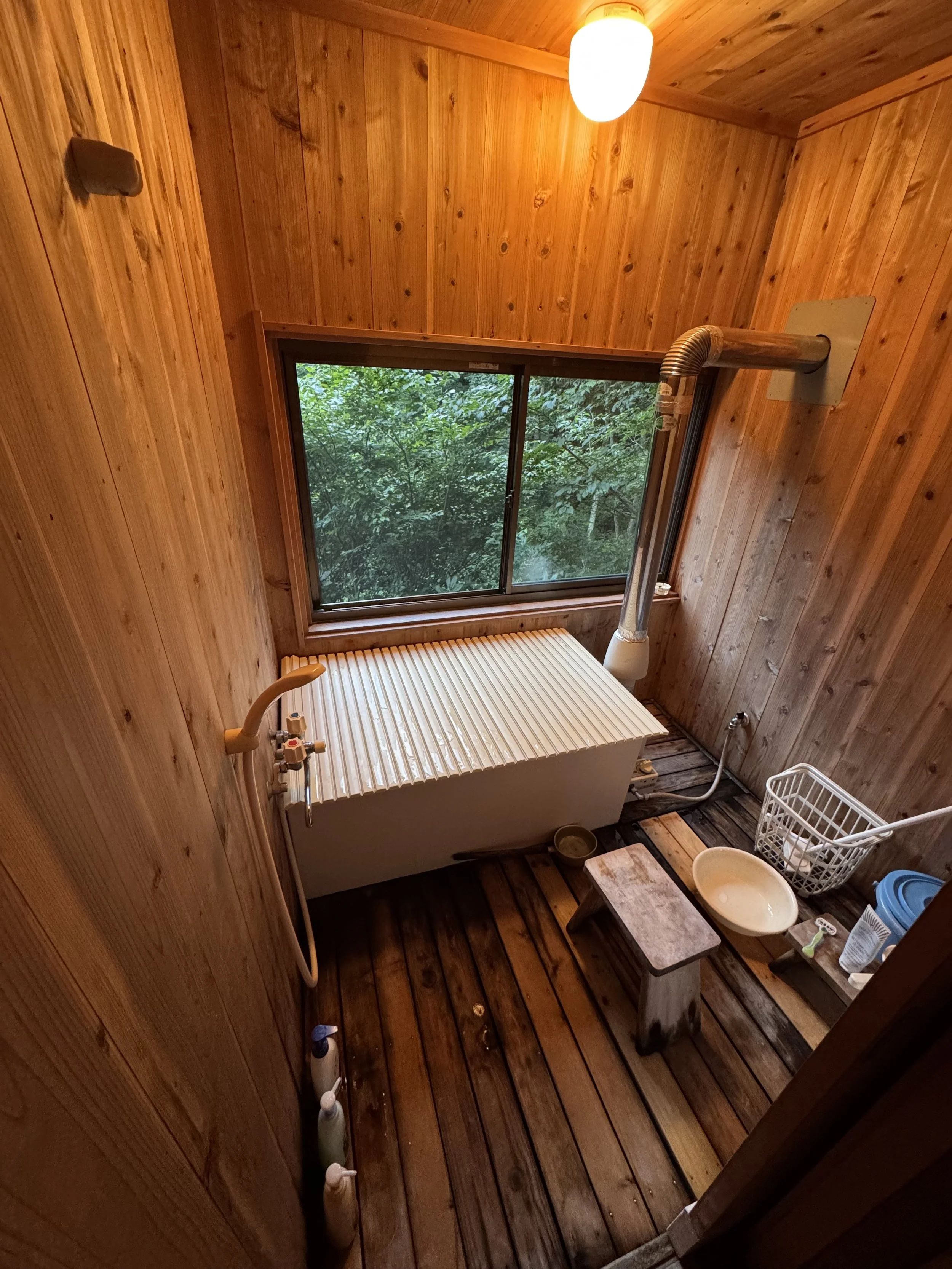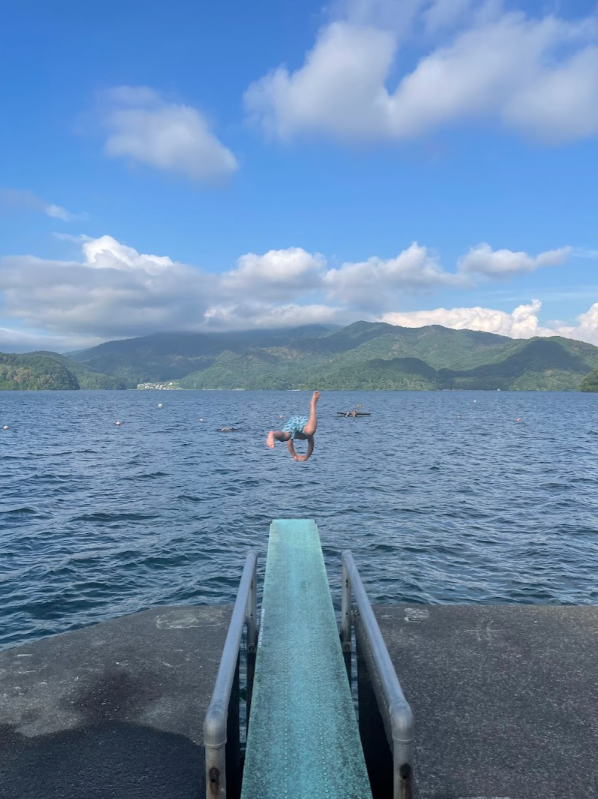Reflections on Family Vacation: On Time, Belonging, and Friction
This August, the kids and I had a chance to return to Japan for a family vacation. While Paul travels there regularly for work, the last time I was there, we were boarding a near-empty flight of U.S. citizens returning home in the depths of COVID.
Like travel often does, this trip brought perspective. Time feels different outside the U.S.
Here are a few reflections from our time away.
The Measure of Time
One of the most influential books I read this year is Oliver Burkeman’s Four Thousand Weeks: Time Management for Mortals. If you know me, you might assume it’s about squeezing more out of every minute. It’s not. It’s a thoughtful reflection—at times a condemnation—of our obsession with productivity, efficiency, and doing more.
There’s a chapter called “Cosmic Insignificance Therapy,” which reminds us just how small each human life is in the grand arc of time.
In Japan, that idea doesn’t need a name. It’s built into the culture. In the U.S., we grow up believing we can change the world and time is of the essence. This certainly has its benefits and you can see it in our entrepreneurialism. In Japan, time feels steadier, less grasped at, more gracefully accepted.
Belonging: The Luxury to Seek
My early career in financial planning gave me a lifelong hobby of dreaming up retirement scenarios. What’s worth saving for? What kinds of experiences are meaningful?
Visiting beautiful places and thinking about how we want to spend our leisure time has helped me see that it’s not just scenery or luxury that will matter (though those will help!) —it’s a sense of belonging.
I often hear retirees talk about how hard it is to find community after moving post-kids. That resonates. As we come to define “enough”—enough income, enough success—it’s clear that for Paul and me, belonging is the delta that matters most for long-term happiness.
Friction, and What Feels Like Luxury
Life at Lake Nojiri (west of Nagano, where we were) is hybrid camping. At the family cabin of 30 years, we have a roof over our heads, but the walls are thin. The space is small. The bugs are big.The mountains here have a subtropical, almost jungle-like climate in summer—a reality hard to imagine in winter when the cabin is inaccessible due to heavy snow.
There’s no washer, dryer, or dishwasher. The bathroom has a handheld shower wand and a (glorious) Japanese ofuro tub. At first, I found myself lamenting the effort: how much work we were putting into daily tasks, even on vacation. Paul smiled and said, “Yeah—but I like when you have to work for it.”
That landed.
Perhaps because of the friction to get the everyday basics done, comforts felt like luxury: a cool breeze through an open window, sun-dried laundry, a hot soak, the smell of pancakes in the morning.
We’re so used to instant gratification—groceries delivered, content streamed, errands handled with a few taps. That ease comes with a cost: when there’s no friction, expectations are higher. The pace becomes unnatural. And I know my operating system can feel quickly overtaxed.
Ease → Less friction → Greater expectations → More pressure → Less joy
I am not wishing away Instacart, but sometimes friction is the thing that slows us down enough to appreciate the beauty.
Our ofuro bath
Expectations & Conflict
Let’s be clear: this delightful vacation was not complaint-free. There was bickering. There were bad moods. We were escaping routine, not real life.
One dear friend once told me, “Most conflict boils down to mismatched expectations.”
And the conflict on our vacation stemmed exactly from that.
The boys remembered the cabin through the eyes of 4- and 7-year-olds—bigger, cleaner, more magical. Their expectations didn’t match the present reality. A “short” hike to an ancient shrine sparked meltdowns when it turned out to be longer, steeper, and buggier than expected.
Since I’m conflict-avoidant, the framework of mismatched expectations helps me understand and approach conflict more clearly and with a bit more grace, “It’s just not what we expected”.
Our unexpected hike to Togakushi Shrine
Trust in Institutions
One reason I feel so safe in Japan, even without speaking the language, is trust in the systems and institutions that keep people safe and healthy.
The erosion of that trust in the U.S. under the Trump administration is a stark contrast. And to say it’s disheartening to feel this shift is a vast understatement. It makes me reflect again on what I value most in a place—not just scenery or culture, but the infrastructure of care and competence.
Coming Home
Each time we travel to Japan as a family, we’ve asked: Should we live here?
This time, I didn’t ask that.
I feel deeply grateful for our community in Maplewood. For friends who feel like family. For the creativity and reflection this trip stirred up—and the reminder to bring more of that into daily life, even if that means welcoming the right kind of friction:
Less screen time
More movement
More art
More writing
We may not have an ofuro in New Jersey (yet!). But we can carry home the lessons that take root from travel.
“We need to travel. If we don't offer ourselves to the unknown, our senses dull. Our world becomes small and we lose our sense of wonder. Our eyes don't lift to the horizon; our ears don't hear the sounds around us. The edge is off our experience, and we pass our days in a routine that is both comfortable and limiting.”
from Kent Nerburn's "Letter to my Son"




